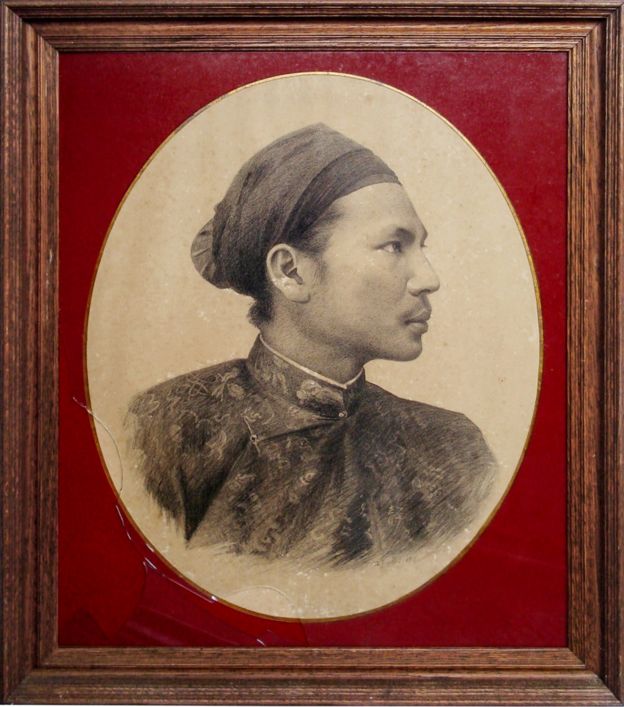
Speaker : Amandine Dabat has a PhD in art history, that she has obtained at the University Paris-Sorbonne (Paris IV). This newly acquired skill would become central to his life. In Algiers, French administration allowed him to study in fine arts with a painting teacher. After being hold captive three years later, he was sent into exile in Algeria, a deed France was responsible for. In 1885 he became the ruler of Vietnam at 13 years old only for a sole year. Invited by Bétonsalon - Centre for Art and Research for a residency in Paris, and in the relation to the exhibition Anywhere but Here, Tran Minh Duc will focus on the overlooked details of young prince Canh’s visit to France.Įmperor Hàm Nghi (咸宜, 1871, Huế - 1944, Alger), known as ‘The Anman Prince’ during his exile, resorted to his given name ‘Tu Xuân’ as his pseudonym. In order to do so, he studies the interaction between individual and collective spheres, between ideas such as the local/ internal and foreign/external. With his artistic practice, he investigates Vietnamese urban life characteristics. His interest lies in the Past, its fragmentary modes of diffusion and the way it interacts with our present time. Speaker: Tran Minh Duc (1982, Hô-Chi-Minh-Ville, Vietnam) is a Vietnamese artist. This journey transformed South-East Asian political spectrum and shaped the connexions between France and Vietnam. As young as five years old, the young prince was sent to Versailles with a delegation in order to convince King Louis XVI to support his dynasty.

Prince Canh, Nguyen Phuc Canh (1780-1801), is an emblematic figure of the relations between South-East Asia and France. We will do so by highlighting the way in which these intimate trajectories between South-East Asia and France allow to perceive the complexity of the policies of development and preservation of the colonial regime, along with the emergence of clandestine anti-colonial movements.

The first session of the program Anywhere But Here at Bétonsalon - Center for Art and Research aims at focusing on the movement of some individuals that were closely related to the history of the Indochinese Union. However, his actions helped him to preserve some freedom.From 1862 to 1954, France has engaged with a policy of “taking possession” (or “protection order”) in South-East Asia, by integrating the entirety of Cambodia, Laos and Vietnam, as well as a part of oriental China to its colonial empire. Hàm Nghi endured the French government’s domination policy of surveillance and suspicion throughout his life. But in spite of his actions, the French Third Republic government managed to use him to their advantage, for example publishing a letter written at the beginning of World War I in which Hàm Nghi had offered France his help. Through them Hàm Nghi was able to communicate with Indochina. Hàm Nghi also set up a communications network made up of close relations, both French and Vietnamese alike, in Algiers. He organised a political network around himself which helped him to negotiate his exile conditions with the French government. However, in spite of the surveillance of the French government, Hàm Nghi managed to retain a certain freedom of action. On the other hand, the French government in Algeria wanted to protect the Prince of Annam who was perceived as harmless. The French government in Indochina and in mainland France were very suspicious of Hàm Nghi, whom they considered to be a dangerous enemy of France. Nevertheless, not everyone in the French government agreed with this form of domination and the exile conditions of Hàm Nghi were regularly negotiated, as there were two conflicting views of the prisoner. His letters to Algeria and mainland France were checked, while he could neither send nor receive any to Indochina. Hàm Nghi was constantly under surveillance and escorted during his travels. The government sent Hàm Nghi to Algiers in fairly comfortable exile conditions but it organised a strong surveillance system around him to prevent him from communicating with Indochina. As the deposed emperor could have been asked to rule Annam again, it was necessary to treat him well in the hope of making him pro-French. more The vietnamese emperor Hàm Nghi (1871-1944), was sent into exile in Algiers from 1889 to 1944 by the French government, in order to end the resistance against the French colonisation in Indochina.Īs soon as Hàm Nghi arrived in Algiers, the French government set up a policy of domination, intending to prevent any attempt at revolt from Hàm Nghi.

The vietnamese emperor Hàm Nghi (1871-1944), was sent into exile in Algiers from 1889 to 1944 by.


 0 kommentar(er)
0 kommentar(er)
